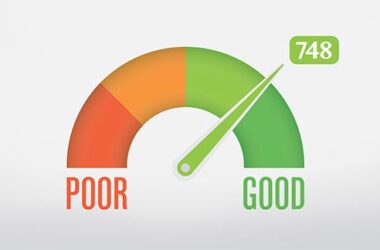Insurance fraud occurs when an individual intentionally deceives an insurance company or agent to obtain money or benefits they are not entitled to. It can take many forms, including falsifying claims, staging accidents, or providing false information on insurance applications. Essentially, it’s a dishonest act that undermines the integrity of the insurance system. In this article,you will be reading about reasons why you should not partake in insurance fraud and the implications for anyone who partake in it.
Reasons Insurance Fraud Should Not Be Encouraged
Here are five reasons why insurance fraud should not be encouraged as an individual:
Ethical Implications
Engaging in insurance fraud is fundamentally unethical. It involves deceiving a company that provides financial protection to individuals and businesses in times of need. By committing fraud, individuals are not only betraying the trust of the insurer but also contributing to higher premiums for honest policyholders.
Financial Consequences
When fraudulent claims are paid out, insurers incur losses, which they offset by increasing premiums for all policyholders. This means that honest individuals and businesses end up paying more to cover the losses caused by fraudsters.
Legal Ramifications
Beyond the moral implications, insurance fraud is illegal in many jurisdictions, including Nigeria. Those caught committing fraud can face severe legal consequences, including hefty fines and imprisonment. Additionally, a fraud conviction can tarnish one’s reputation and make it difficult to secure future insurance coverage or employment opportunities.
Impact on Insurance Industry
Insurance fraud undermines the stability and viability of the insurance industry as a whole. When fraudulent claims go undetected, insurers suffer financial losses, which can lead to reduced coverage options and higher premiums for consumers. Ultimately, this erodes trust in the insurance system and can have far-reaching implications for the economy.
Detrimental to Society
Insurance fraud isn’t a victimless crime. It affects everyone, from policyholders to insurers to society at large. When fraudsters exploit the system, legitimate claims may be delayed or denied, leaving individuals and businesses vulnerable during times of crisis. Additionally, the resources spent investigating and combating fraud could be better allocated to improving insurance services and providing support to those in need.
Now that you’ve seen the reasons why insurance fraud should not be encouraged, let’s see the legal implications of partaking in insurance fraud in Nigeria.
Punishments Of Insurance Fraudsters In Nigeria
In Nigeria, insurance fraud is taken seriously, and perpetrators can face severe penalties under the law. The Insurance Act of 2003 outlines various offenses related to insurance fraud, including making false statements or representations to obtain insurance, submitting false claims, and conspiring to defraud insurers.
Those convicted of insurance fraud in Nigeria can face fines of up to ₦250,000 and imprisonment for a term of up to five years, or both. Additionally, the court may order the fraudster to repay any money obtained through fraudulent means and may impose other penalties as deemed necessary.
The Nigerian Insurance Industry Database (NIID) was established to combat fraud in the insurance sector by providing a centralized database for verifying insurance policies and claims. Insurers and law enforcement agencies can use the NIID to detect fraudulent activities and take appropriate action against offenders.
Despite these efforts, insurance fraud remains a significant challenge in Nigeria, requiring continued vigilance and collaboration between insurers, regulators, and law enforcement agencies to effectively combat it.
FAQs
Is insurance fraud a crime in Nigeria?
Yes, insurance fraud is considered a felony in Nigeria and is punishable by fines, imprisonment, or both under the Insurance Act of 2003.
How can insurance fraud be detected?
Insurance fraud can be detected through various methods, including data analysis, investigation of suspicious claims, and collaboration between insurers and law enforcement agencies.
What are the consequences of insurance fraud?
The consequences of insurance fraud can include legal penalties, financial losses for insurers and policyholders, higher premiums, and damage to the integrity of the insurance system.
How common is insurance fraud in Nigeria?
While it is difficult to determine the exact prevalence of insurance fraud in Nigeria, it is considered a significant issue that undermines the stability and trustworthiness of the insurance industry.
What can I do if I suspect an insurance fraud?
If you suspect insurance fraud, you should report it to the relevant authorities, such as your insurance company or the National Insurance Commission (NAICOM), so that they can investigate the matter further.
Conclusion
Insurance fraud is a crime and should be shuned. Many people have successfully defrauded insurance companies in the past and now, after much investigations, they are paying for their crimes. Don’t partake in insurance fraud. It is not legal and it is not encouraged.




